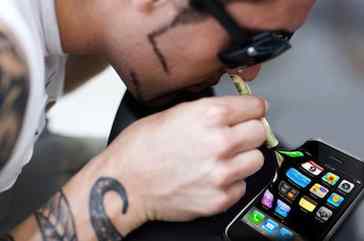
Every few weeks, a group of people — typically a dozen or so professionals, from Silicon Valley and Wall Street, academia and Hollywood — pay for the privilege of ditching their smartphones, laptops and tablets and spending a few days at a lodge in the California Redwoods for a “Digital Detox.”
Deprived of their screens, they hike, swim and do yoga in a deliberate effort to reestablish some balance in lives that have tilted too far toward browsing, texting and tweeting.
Such getaways are increasingly common. Whether the organizer calls it a digital diet, disconnecting, detoxing, unplugging or going off the grid, it’s part of a growing movement to help highly plugged-in Americans step away from technology and digital media.
Some hotels have experimented with packages for visitors who want to go tech-free. “Check-In to Check-Out” at the Lake Placid Lodge in the Adirondacks requires guests to leave their electronics at the front desk and replace them with activities such as cooking classes, fishing and reading a bestseller (hard copy). Marriott and Renaissance hotels in the Caribbean and Mexico set up tech-free areas called “Braincation Zones,” where guests are encouraged to talk, read and play games.
For the past four years, an organization called Reboot has organized a National Day of Unplugging. For 24 hours beginning at sundown on the first Friday of March, participants pledge to take a complete break from the Internet.
Ironically, there are even apps you can download to unplug. One such program, called Freedom, blocks access to Internet on your computer for up to eight hours at a stretch. Another, called SelfControl, lets you block out specific websites for 24 hours at a time.
Steve Lambert, founder of SelfControl, says the real value of his app is that it makes users aware of their behavior — getting blocked every time they try to go to Facebook, for example, shows them how often they do it.
Similarly, Levi Felix, founder of Digital Detox, says the purpose of his tech-free retreats is not to completely wean people from technology, but rather to help them become “mindful” of their usage.
In 2011, more than 27 percent of Americans were “highly connected,” defined as those who connect to the Internet from multiple locations and devices, according to the U.S. Census Bureau. Nielsen reports that 60 percent of Americans own smartphones — giving them the constant ability to access the Internet, email and social media. That brings the expectation of always being online.
“The expectation that you are always reachable — that you will respond immediately to that beeping, buzzing and ringing of texts, emails and phone calls — has created a society of people who are on edge and overwhelmed,” says Tanya Schevitz, a spokeswoman for the National Day of Unplugging.
“You see couples at dinner both texting someone else or scrolling through Facebook. That gets old,” she said. And as the pull of technology puts a strain on personal relationships, she said, “people want to stop living through Facebook and Twitter and reconnect.”
Felix agrees. “If we don’t figure out how to live with each other, enjoy each other as humans in real life, then we continue down this path of always being on our screens,” he said. “We’re going to create a culture that’s always lonelier, create a culture where our kids don’t know how to have dinner with their family.”